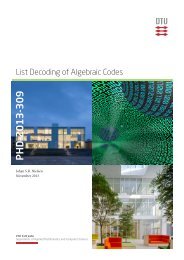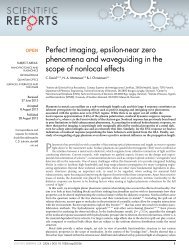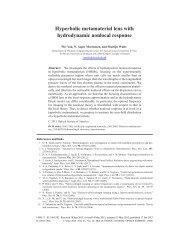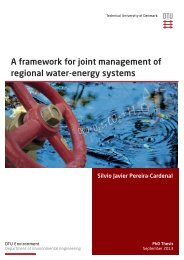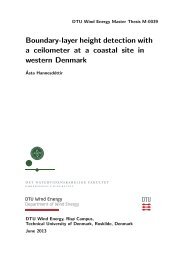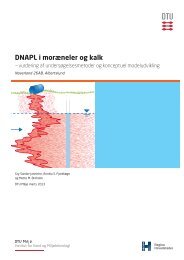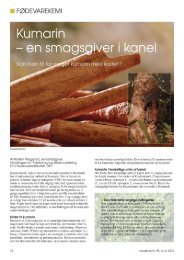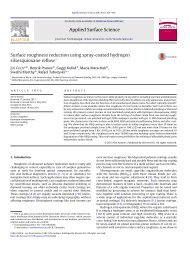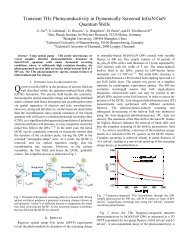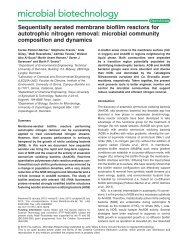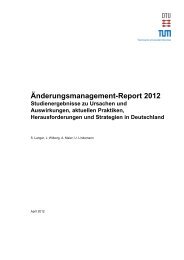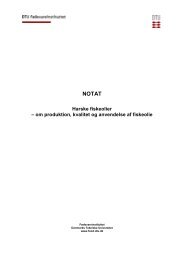PEC12-25 CAPEC-PROCESS Industrial Consortium ... - DTU Orbit
PEC12-25 CAPEC-PROCESS Industrial Consortium ... - DTU Orbit
PEC12-25 CAPEC-PROCESS Industrial Consortium ... - DTU Orbit
You also want an ePaper? Increase the reach of your titles
YUMPU automatically turns print PDFs into web optimized ePapers that Google loves.
Lida Simasatitkul (LDSI)<br />
Chulalongkorn-<strong>CAPEC</strong><br />
Muhammad Zaman<br />
KAIST-<strong>CAPEC</strong><br />
From biomass to fatty alcohol via bio bio-diesel: Optimal<br />
process design<br />
The objective of this project is to develop a systematic step by<br />
step methodology to obtain flexible process flowsheets for<br />
biodiesel and related products from different bio bio-sources. The<br />
methodology will generate different flowsheet alternatives,<br />
analyze them hem through process simulation and evaluate them<br />
based on operational issues, economics, and supply chain as<br />
well as sustainability measures to deteremine the best process<br />
design. The systematic methodology will be applied to a case<br />
study to determine the optimal process design to produce a<br />
combination of at least two products: bio bio-diesel and/or fatty<br />
alcohol from at least two different biosources: palm oil and<br />
waste cooking palm oil. The process flowsheet should be<br />
flexible to allow the processing steps re required for both the<br />
products using both the raw material sources. The process<br />
design should be flexible so that changing prices/supply of raw<br />
materials as well as prices/demand of products can be handled.<br />
That is, the process flowsheet should be able to ha handle the<br />
changing operating conditions for the raw material to product<br />
processing routes.<br />
Collaboration with Chulalongkorn University, Bangkok,<br />
Thailand (Prof A Arpornwichanop)<br />
Research areas: B, C, E<br />
Carbon dioxide capture from power plants: Performance<br />
and control studies<br />
Carbon dioxide is responsible for 60 percent of the global<br />
warming caused by greenhouse gases (GHGs). According to the<br />
International Energy Agency’s roadmap, 20 percent of the total<br />
CO2 emissions issions should be removed by CCS by year 2050. Hence<br />
the capture of CO2 from power plants, mainly form coal based<br />
power generation is much significant for greenhouse gas<br />
reduction. The overall objective of this project is to perform<br />
comparative performance study for different solvents and<br />
alternative configurations of the carbon capture process, and to<br />
perform dynamic simulations for the selected process to resolve<br />
control issues. For the base case, mature solvent<br />
monoethanolamine (MEA) will be used. For process simulation<br />
and analysis, commercial simulators with user user-added modules<br />
will be used. The project will try to identify suitable solvent<br />
replacements; identify the most important design design-control<br />
parameters; develop dynamic models for the CO2 capture<br />
process; cess; identify novel integration opportunities to make the<br />
process more sustainable than the existing base case designs.<br />
Collaboration with KAIST, Korea (Prof Jay H. Lee)<br />
Research areas: B; D, E<br />
41



